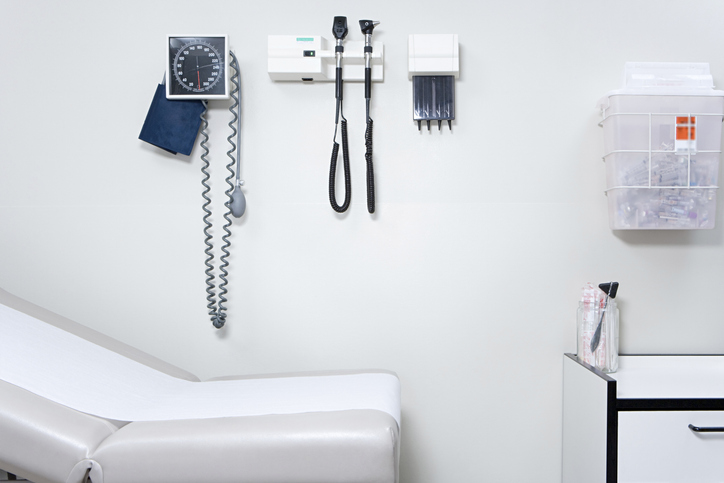Over the past decade, more than 30 states have either increased or reformed their gas taxes. In Missouri, four new bills have been proposed for the spring legislative session that would increase Missouri’s gasoline tax for the first time in 20 years. The state’s current gas tax stands at 17 cents per gallon, which is one of the lowest rates in the country. According to the Missouri Department of Transportation, the state current has $825 million in unfunded annual transportation needs considered high priority.
There have been several attempts to increase the gas tax rate in recent years. In 2018, a ballot initiative to increase the tax by 2.5 cents per year for four years was rejected by Missouri voters. Three of the new bills would require voter approval, due to the rules set by the Hancock amendment, a constitutional amendment to the Missouri Constitution that requires all tax increases over a certain amount to pass a statewide referendum.
The first three bills would each increase Missouri’s gas tax gradually over time, however, they differ on the size of the increase and how the increase would be implemented. The first bill, House Bill 1476, would increase the gas tax to 23 cents per gallon over three years, to 19 cents per gallon in 2021, 21 cents per gallon in 2022 and finally to 23 cents per gallon in 2023. The second bill, House Bill 1477, would raise the tax by 10 cents over five years, at a rate of 2 cents per year.
The third bill, Senate Bill 539, would raise taxes on gasoline to 19 cents per gallon in 2021. This bill is different from the other two because it would adjust each year for inflation after implementation. Tying any tax rate to a certain commodity price or the Consumer Price Index is problematic and makes politicians and regulators less accountable for tax changes. Even worse, this can contribute to higher prices by placing upward pressure on the very measures used to determine the rate. The fourth bill, House Bill 1433, which is the only bill that would not trigger the Hancock amendment, would temporarily increase the gas tax to 19 cents per gallon in January of 2021 and keep this rate until Dec. 31, 2030. The tax would then decrease to 18 cents per gallon.
Gasoline taxes are an unreliable funding source for state transportation projects, road construction, and maintenance due to declining gasoline prices and more fuel-efficient vehicles. In 2015, Daniel Vock, writing for Governing, analyzed state gas tax data reported to the U.S. Census Bureau and found two-thirds of state fuel taxes failed to keep up with inflation.
Gasoline taxes are ineffective, regressive, and have increasingly left transportation systems shortchanged. In a Show-Me Institute Policy Study on gasoline taxes, Joseph Miller argues the rise of fuel-efficient cars has decreased motor-fuel tax coffers. “The main problem is that the user-fee funding base originally set up to fund highways has failed to keep pace with the increasing expenditures required to build and maintain the state’s most-trafficked roads and bridges,” wrote Miller. “The largest portion of that funding base is the state’s 17 cent per gallon fuel tax, revenue from which has been in long-term decline, as drivers choose more fuel-efficient vehicles and economize on travel.”
Wendell Cox and Ronald Utt argue gas taxes have a stronger effect on lower- and middle-income families than they do on the wealthy. The tax could also cause low-income families to drive less, which could reduce employment options. Americans for Prosperity estimates lower gas prices amount to approximately $100 in additional spendable income per month for an average family, which means the recent nationwide drop in gas prices could potentially lead to an additional $100 billion of economic growth.
Miller makes several recommendations for Missouri legislators to consider. “Longer-term solutions for MoDOT’s funding issues could include alterations to the Missouri state highway system itself, changing priorities at MoDOT, implementing a more wide-ranging tolling program, or exploring mileage-based user fees,” wrote Miller.
As the rise in fuel efficient vehicles accelerates, motor-fuel tax revenues will continue to decline. Missouri will have to explore more modern and efficient ways to fund road construction and traffic infrastructure, which should include privatizing roads and establishing toll systems. In several cities, transportation agencies are using congestion pricing—varying toll prices based on congestion—to manage demand and limit traffic problems.
The following documents provide additional information about how motor-fuel taxes are applied and their effect on the economy.
FAQ: How do Gasoline Tax Hikes Affect Cross-Border Competition?
https://heartland.org/publications-resources/publications/faq-how-to-gasoline-tax-hikes-effect-cross-border-competition?source=policybot
In this FAQ, Matthew Glans examines the effect of gasoline tax changes on the price of fuel, availability of stations, and the overall impact on consumers and the economy across state borders.
Funding the Missouri Department of Transportation and the State Highway System
http://showmeinstitute.org/sites/default/files/Funding%20MoDOT-%20Miller.pdf#sthash.sZ5P69N4.dpuf
In this Policy Study, Joseph Miller of the Show-Me Institute conducts a thorough analysis of the current state of Missouri’s highway system and the challenges it faces in the near future.
Policy Tip Sheet: Gas Taxes are not the Long-Term Solution to Funding Transportation
https://heartland.org/publications-resources/publications/policy-tip-sheet-gas-taxes-are-not-the-long-term-solution-to-funding-transportation1?source=policybot
In this Policy Tip Sheet, Matthew Glans examines gasoline taxes, how they have become less effective over time, and why states can no longer rely on them to fund state transportation projects.
Dispelling the Myths: Toll and Fuel Tax Collection Costs in the 21st Century
https://reason.org/wp-content/uploads/2012/11/dispelling_toll_and_gas_tax_collection_myths.pdf
In this Reason Foundation Policy Study, Daryl S. Fleming examines all-electronic tolling, its basic operations plan and business model, the principal factors affecting toll collection costs, and a number of reforms states can make to reduce the cost of toll collection.
23rd Annual Highway Report on the Performance of State Highway Systems
https://reason.org/wp-content/uploads/2018/01/23rd_annual_highway_report.pdf
In this report, the Reason Foundation ranks the performance of state highway systems in 11 categories, including spending per mile, pavement conditions, deficient bridges, traffic congestion, and fatality rates.
State Motor Fuel Taxes
https://www.api.org/oil-and-natural-gas/consumer-information/motor-fuel-taxes/gasoline-tax
The American Petroleum Institute documents each state’s current motor-fuel taxes (both gasoline and diesel).
Alternatives to the Motor Fuel Tax
https://heartland.org/publications-resources/publications/alternatives-to-the-motor-fuel-tax?source=policybot
This report, prepared by the Center for Urban Studies at Portland State University and submitted to the Oregon Department of Transportation, evaluates potential alternatives to motor-fuel taxes. The report also identifies the economic and technological problems that must be addressed when designing alternative revenue sources.
Designing Alternatives to State Motor Fuel Taxes
https://heartland.org/publications-resources/publications/designing-alternatives-to-state–motor-fuel-taxes?source=policybot
Writing in Transportation Quarterly, Anthony M. Rufolo and Robert L. Bertini consider the future of motor-fuel taxes in world in which more fuel-efficient vehicles are rapidly becoming available. They also report on the economic effects of road pricing as a substitute for fuel taxes.
Paying at the Pump: Gasoline Taxes in America
http://taxfoundation.org/article/paying-pump-gasoline-taxes-america
In this paper from the Tax Foundation, Jonathan Williams argues gas taxes can be an effective means of funding transportation improvements. In many cases, however, governments exploit the taxes for political reasons, spending them on projects unrelated to roads and other transportation projects.
Research & Commentary: Congestion Traffic Pricing
https://heartland.org/publications-resources/publications/research–commentary-congestion-traffic-pricing?source=policybot
Congestion pricing, an alternative to gasoline taxes, uses market principles to address traffic congestion. Under a congestion pricing model, road operators charge a variable price based on congestion, thereby managing demand and limiting congestion. Heartland Senior Policy Analyst Matthew Glans examines several proposals for implementing pricing systems to alleviate traffic congestion.
Raising Gas Taxes Won’t Fix Our Bridges
https://reason.org/wp-content/uploads/2007/10/59f2e045a676b9c69bb9139b2c217bf3.pdf
In the aftermath of the I-35 bridge collapse in Minneapolis, Minnesota, Adrian Moore of the Reason Foundation argues increasing fuel taxes should not be the only response to state transportation funding problems. Moore wrote, “First we must examine how we spend transportation dollars now. Then we maximize the value out of those dollars. Finally, the last step is to address the need for additional revenue.”
Commentary is intended to influence the passage of legislation, and it does not necessarily represent the views of The Heartland Institute. For further information on this and other topics, visit the Budget & Tax News website, The Heartland Institute’s website, and PolicyBot, Heartland’s free online research database.
If you have any questions about this issue or The Heartland Institute’s website, contact the government relations team, at [email protected] or 312-377-4000.




